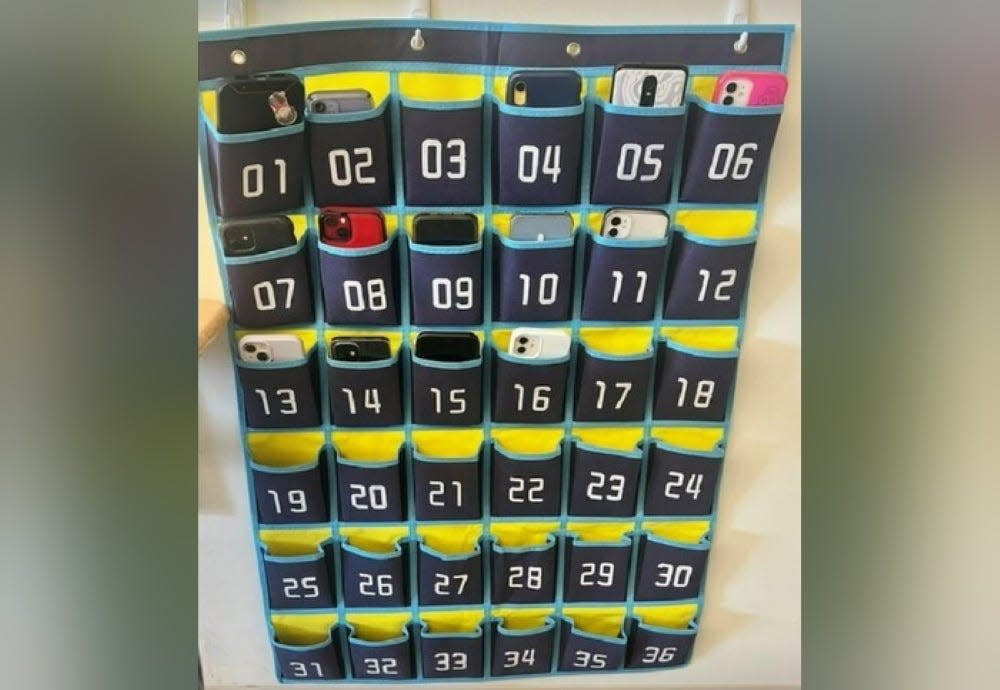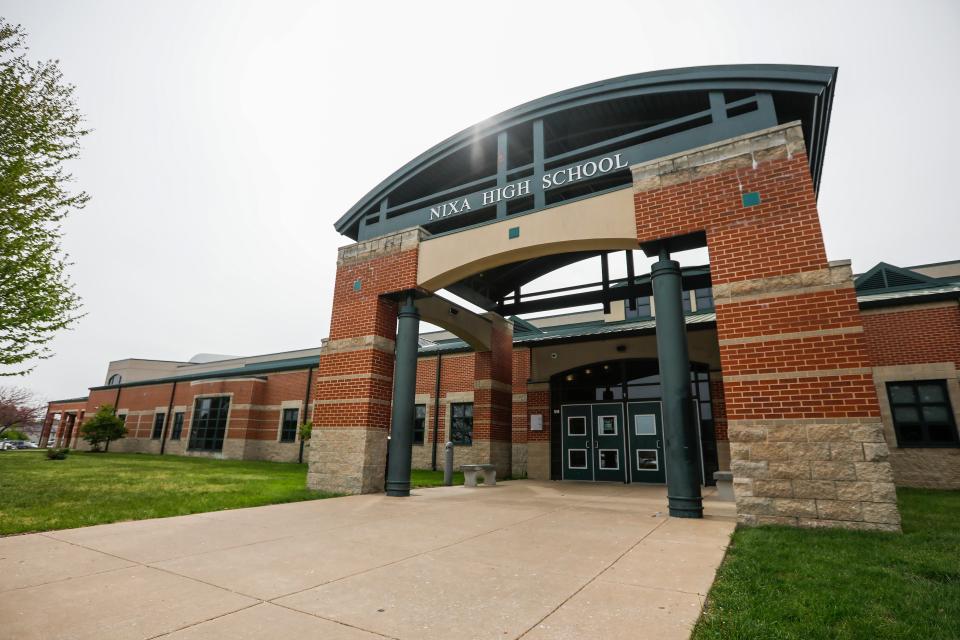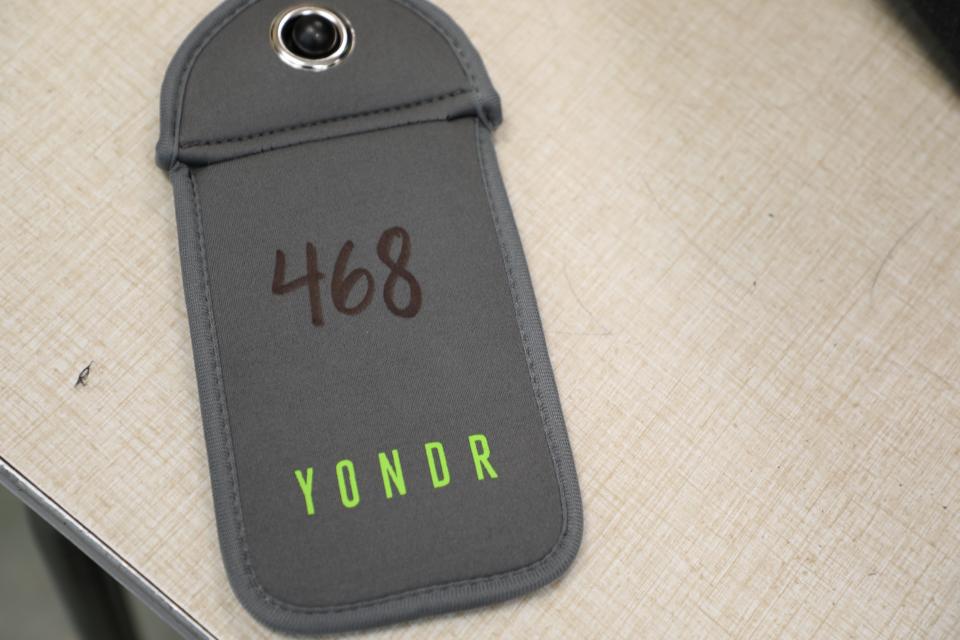Nixa High School will restrict student cellphone use in classrooms starting this fall

This fall, the nearly 2,000 students at Nixa High School will be expected to turn over their cellphones each time they enter a classroom.
The cellphones will then be stored by the teacher in a central location, like a wall organizer or a locking pouch, until the bell rings.
Principal David Kelly said the change was requested by teachers and will be reflected in the student handbook that is distributed at the start of the 2024-25 school year.
The new approach was briefly discussed during a recent school board meeting and will be widely communicated to students and their families before the first day of class.
"I'm sure there is going to be pushback," Kelly said Monday. "In a school the size we are now you are not ever going to have 100% agreement on anything."

With the change, Nixa joins a growing number of districts in Missouri that placed new restrictions on cellphone use, with many citing national research on the impact of cellphone use on students' mental health, social skills, and behavior issues.
"It was something more and more of our teachers were moving towards over the last couple of years," Kelly said of restricting cellphone use by students. "It just felt it was time to take that step as a building and ensure consistency across our classrooms."
Kelly added: "Teachers were asking for more consistency."
Nixa Public Schools started with an outright ban on student cellphones and that remains the case in the elementary, intermediate and junior high buildings.
Kelly said eight years ago, when he was assistant principal, the rules changed for the high school. It allowed students to use cellphones during lunch, passing periods and a midday intervention period.
But, during instructional time, the cellphones were to be put away, and that responsibility fell to teachers.
"We had varying degrees of enforcement within the classroom," he said. "Depending on what classroom you walked in, and depending on what teacher you had, you would see a different expectation."

Kelly said the change coming this fall will take the responsibility off teachers' shoulders because the rules will be the same in each classroom. However, teachers will designate a central drop-of spot in class and how the cellphones will be stored.
"That may look like a calculator holder and may, in some classes, be a cellphone lockbox," he said. "We are going to leave it up to the teacher and allow them to decide what best works for their style of classroom management."
Kelly said teachers can permit cellphone use in class for an instructional purpose. For example, listening to music in an advanced art class.
"If you walk into that class, you are going to see the students working on their projects with their earbuds in," Kelly said. "In that classroom, it works well. Students listen to music while working on a painting or drawing. It helps get those creative juices flowing."
More: Springfield district's new plan spells out what technology is used in schools and why
He said exceptions will be granted in rare circumstances if part of an Individualized Education Program or Section 504 plan, which outlines accommodations for special needs. For example, a student with Type 1 diabetes may use a skin sensor and smartphone app to monitor blood sugar levels.
The high school administration took the step in an effort to improve "cognitive engagement," Kelly said.
"Whenever you're learning something new or you're engaging in a task, you're using brain power. The more focused you can be on the task at hand, the better the outcome," he said.

Kelly said the change will also allow students to "unplug a little" and train students there is a time to put phones away to focus on learning or engaging with others.
"Hopefully, we can teach students those skills," he said. "They're going to need those skills when they transition to the workforce or even to college."
The Christian County district has a board-approved policy on electronic devices but specific rules are reflected in the student handbooks.
Asked what consequences a student will face if they break the cellphone rule, Kelly said it won't change. Here is the scope and sequence:
First infraction − Verbal warning, including a referral that goes to the office;
Second infraction − One day of detention after school;
Third infraction − Two days of detention after school;
Fourth infraction − One day of in-school suspension.
"We just stick with one day of in-school suspension throughout the year so if you get a fifth (infraction), it's just one day and so on," he said.
Kelly said he hopes that once students understand why the change was made, they will embrace it.
"My hope would be a year from now that you'd see more interaction amongst our students ... increased verbal, face-to-face interaction," he said. "This might sound a little bit like a high hope, but I'd like to see some signs that the mental health of our students is in a better place because they are able to unplug from time to time."
He added: "Then, ultimately, hopefully it has a positive impact on learning in the classroom environment."
This article originally appeared on Springfield News-Leader: Nixa High School will implement stricter student cellphone rules

